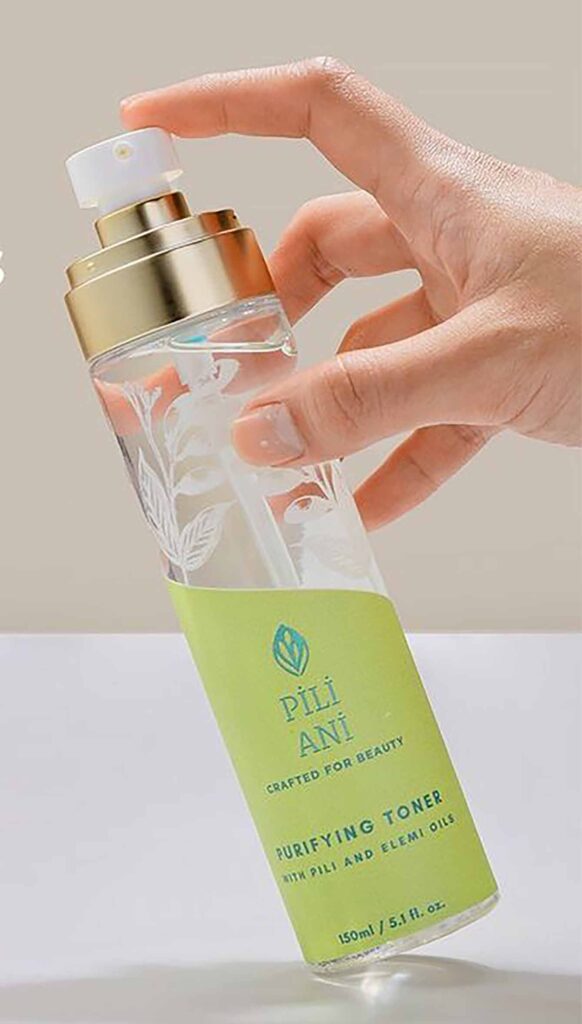Rosalina Tan still remembers when she first purchased a bottle of pili oil from a farmer; little did she know that this act of kindness would be the beginning of something revolutionary in the growing local beauty industry.
Pili Ani, a local and advocacy-driven beauty and skincare brand, is crafted with love, passion and commitment to empowering the community through organic farming.
“It’s an upshoot of my organic advocacy,” said Tan in a “PairFect” interview with DAILY TRIBUNE. “I keep telling them that this (pili oil) is a good product from the Philippines, and it is comparable with olive oil.”
“Everybody knows about pili [is] only the nuts, but the outside part is where we get the oil. It’s a delicacy in Bicol,” Tan affirmed as she shared how advocating for this seemingly magical pili oil would also be a pathway for her to uplift farmers and start something new.

The journey
Her daughter, Mary Jane Tan-Ong, knew they had to do more and create a more sustainable and long-lasting impact as her mother began filling their modest warehouse space with more and more bottles of pili oil she had bought from farmers.
“She just wanted to build a community and help the farmers,” Tan-Ong said as she recalled their humble beginnings. “If we want to make this sustainable, let’s build a brand.”
However, starting a business and building a brand were not easy tasks. The mother-daughter duo made sure that everything that came out of the brand was purely and thoroughly researched, well-crafted and made out of love and support for local farmers who were earning less for their hard work.
These efforts consisted of joining exhibits, coordinating with local government agencies, training with farmers, tree planting and more.
“There is so much potential for (the) pili tree. It really woke up the Bicol government. Now, everybody is talking about pili and they’re really supporting it,” she said.
Apart from the pili oil, the brand also creates more awareness about elemi resin, which comes from the bark of a pili tree and contains firming and anti-bacterial properties that strengthen the formulation of skincare products and make the skin more radiant and rejuvenated after use.
Thriving and prospering
Now, despite being launched over eight years ago, Pili Ani continues to make waves in the industry as they provide premium and sustainable beauty and skincare products like creams, lotions, mists, hand soaps and more.
Ana Migo, the brand’s creative director, asserted the importance of empowering and uplifting local beauty brands.
“It’s really important that we love our own,” Migo said. “We are a country of wonderful resources, we are a country of beautiful people, we have great skin. Why are we not ambassadors for the world for something we already have here?”

It is also undeniable that the beauty industry has been thriving with multiple releases of unique and captivating beauty and skincare products. However, there is one thing that sets Pili Ani apart from other brands in the country.
Aside from being confident with all of the products that they bring out to the market, especially their newly launched products, such as the cleansing butter and cleansing oil, the women of Pili Ani never forget to recognize the hard work and dedication of people who are working behind the brand — the farmers.
“We also help the farmers in the community, and most importantly, we also make sure that the children of these farmers have a choice, whether they want to be farmers or doctors or something else that they can pursue their own passions,” said Migo, adding that they also give educational opportunities as part of their long-running sustainable advocacy.
“We make sure that we have enough supplies and that the farmers are very well taken care of. Because at the end of the day, if we don’t have the farmers, wala. We don’t have anything,” Tan-Ong said. “We just want Filipinos to be proud of locally sourced products that are really effective.”
